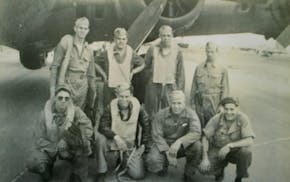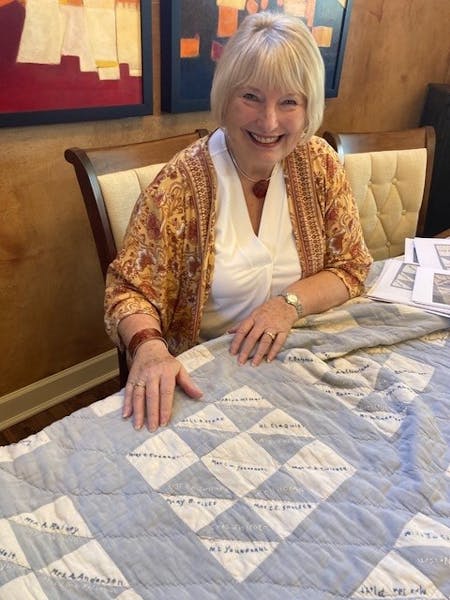Staff Sgt. Robert Kodadek's platoon twice landed behind enemy lines in August 1943, scrambling above the Mediterranean coast near Sant'Agata. The Sicilian campaign of World War II had reached a chaotic frenzy.
"We encountered considerably more resistance, and were in a desperate position for 24 hours," Kodadek, then 24, wrote to his hometown newspaper, the New Prague Times, two months later.
After gaining the high ground and digging in, they found that "our chow and ammunition was left on the beach with no way of retrieving it."
The Germans were readying a counterattack as U.S. ships and dive bombers shelled away. "We stumbled up and down steep hills," finally breaking through enemy lines and joining the Allied troops. Victory was near.
Kodadek's 79-year-old letter is just one snippet in a new book, "Letters to Home: New Prague's Contribution to WWII," published this spring by the New Prague Area Historical Society. Author Tom Vanasek, a retired bond trader, has deep roots in New Prague: His grandparents' families settled in the town in mid-1800s, and he moved back five years ago.
While doing family research, Vanasek came across soldiers' letters to the Times, like Kodadek's, that were sent during the war. He compiled them in a book so "others might have a better appreciation and understanding of what that generation endured," Vanasek said in an email.
"While this centers around the New Prague area, I think it's a safe bet you could insert any small town, and reveal the same type of stories," Vanasek said. "New Prague was just fortunate to have the local paper document it all."
Kodadek's is just one of more than 800 New Prague-area names mentioned in the book. And Bob Kodadek was one of more than 300,000 Minnesotans who served in the Armed Forces in WWII.
Bob and his twin sister, Roberta, were the youngest of eight children born to a family with Bohemian roots that farmed 5 miles south of New Prague in Lanesburgh Township. With the 1918 influenza pandemic raging, they were born on the farm because hospitals were considered unsafe, according to Bob's daughter, Sue Kodadek, 66, a retired physical therapist from West St. Paul.
Sue has compiled her own scrapbook of her father's letters home, along with the letters he received from family members while fighting in Europe and Africa.
"He never talked about the war — never, ever," she said.
Kodadek's letters to the Times reflect the change in mood as the war grew more intense. A month before the mayhem in Sicily, he wrote about picking up a healthy tan on the Mediterranean seashore in Tunisia and hoping to get some photos of the battlefield after the recent Axis surrender.
"Early on, the letters were more upbeat, describing all the different parts of the country or world they had never experienced before," Vanasek writes in the book's preface, adding that "as combat became more real, and weeks turned into years, the tone of many letters shifted."
After the war, Kodadek began a long career as a commercial printer, first in New Prague and then in the Lake Minnetonka area. He and his wife, Ellen, a hospital housekeeper, raised Sue and Sandra in St. Louis Park. He bought some land on Woman Lake in northern Minnesota, where he loved to fish and hunt deer, pheasant and grouse.
"He had no boys, so Sandra and I were his hunting dogs along with our Brittany spaniel," Sue joked, adding that her father befriended Vietnam War veterans he worked with who also loved to hunt and fish.
"He taught me how to hunt and appreciate nature," said his nephew Jerry Bohnsack, 75, who retired in 2012 after 33 years as New Prague's city administrator and now lives Up North in Deerwood. "If you knew him, you loved him. He was a prankster who liked a cocktail."
Bohnsack and Sue Kodadek said Bob came home from fighting in Gen. George Patton's Seventh U.S. Army with what would later be called post-traumatic stress disorder.
"My mother told me that if you dropped a fork at the dinner table and it made a loud noise, he'd jump for his gun," Bohnsack said. Sue added that watching the 1970 film "Patton" also triggered his war-rooted anxiety.
Sue replaced his trailer home at Woman Lake with a year-round house after her father died in 1981 at 62 from lung disease.
"He'd smoked, but quit," she said.
Vanasek said all the proceeds from the book will be funneled back to the New Prague Area Historical Society (npareahistory.com).
"Like many others growing up in a small idyllic town in the '60s," Vanasek said, "I never fully appreciated how different things were and the severe hardships people endured just 20 short years earlier."
Editor's note: Starting today, Curt Brown's Minnesota History column will appear every other Sunday. Readers can send him ideas and suggestions at mnhistory@startribune.com. His latest book looks at 1918 Minnesota, when flu, war and fires converged: strib.mn/MN1918.

Minnesota History: Ad man turned Paul Bunyan into a folklore icon
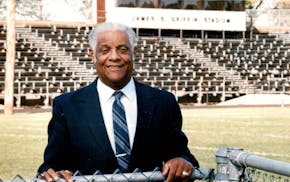
Minnesota History: James Griffin used persistence to blaze a trail for St. Paul's Black police officers
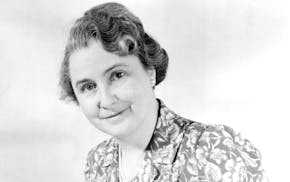
Minnesota History: For Granite Falls doctor who tested thousands of kids for TB, new recognition is long overdue
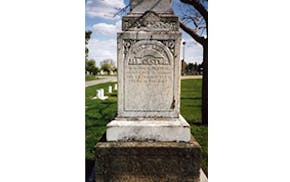
Minnesota History: A New Ulm baker wearing a blanket fell to friendly fire in the U.S.-Dakota War
